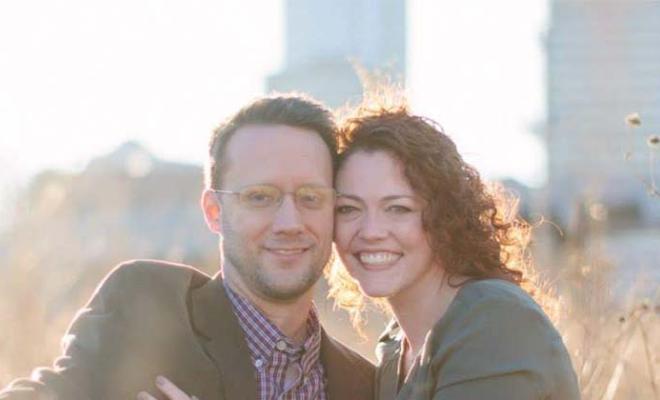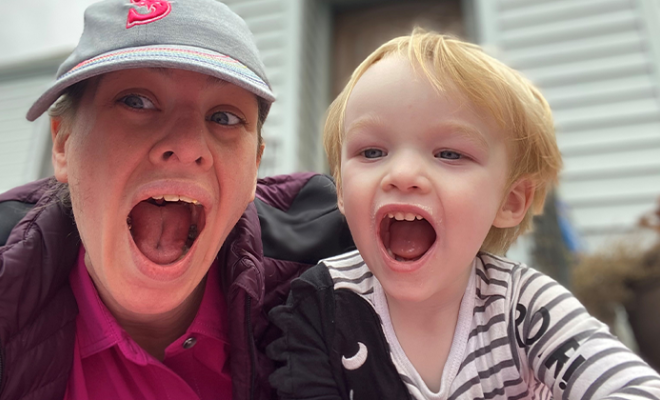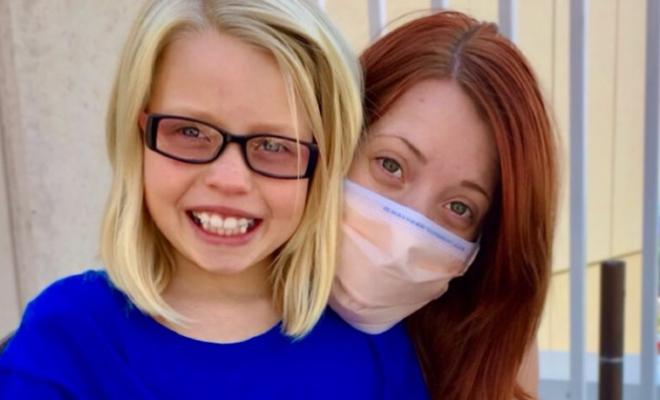“I can’t wait until we’re done with COVID,” I hear at least three or four times a week. My psychotherapy patients, like everyone, feel exhausted and frustrated by the never-ending cycles of cautious optimism, cases going up, renewed vigilance, and backward steps, etc. When I ask what folks most look forward to, overwhelmingly the answers are about relationships. “I can visit my parents in Wisconsin again,” or “I can go out with my friends for girls’ night,” or “We can have holidays together again.” We can see and freely interact with the people we love in person.
More and more, though, I also hear the growing awareness that the social circle we will reconnect with “after” the COVID-19 pandemic is over may look very different than the one we had before the pandemic. I feel this myself. When I married my husband, I knew it would change my risk calculus during flu season and while traveling. I wore N95 masks on planes and wrote office policies asking patients to reschedule when they had symptoms of respiratory illness even before COVID. When COVID hit, like others whose loved ones live with cystic fibrosis, I rigidly followed COVID safety guidelines as they were updated. Nothing mattered more to me than protecting my husband’s health and safety, and no personal discomfort or sacrifice seemed unreasonable when the alternative was an unpredictable and frequently devastating illness that no one knew how to treat effectively.
I was grateful when family members and friends reached out periodically last year to check on my husband’s health; I felt less alone in my own intense concern about him. “I’m so glad he has you to look out for him,” some relatives told me. And then I saw their social media posts. The same friends and family who expressed concern about my husband posted mocking memes about mask-wearing “sheeple.” Their stories featured pictures in crowds, unmasked, in defiance of mandates or safety guidelines. They travelled by plane to anyplace that accepted American travelers. They complained bitterly about what they’d been forced to sacrifice when, from their perspective, so few people die from COVID.
I was dumbfounded by some of this. “Stay safe,” these loving people would tell me or my husband, “but I’m not living in fear.”
The message was clear: I would rather you live as a shut-in, or even get sick or die, than do anything that I don’t want to do, no matter how small or temporary. I choose to live in denial; you must therefore live in fear.
After the vaccine rollout, when I could finally imagine a future free from constant dread, it was horrifying to see how many of the people who had expressed support and love declare their adamant opposition to taking the vaccine. They scoffed at the idea that their small sacrifice of comfort was necessary to end the horror of COVID. They unironically cried, “my body, my choice,” and subscribed to bizarre conspiracy theories about 5G and Bill Gates and microchips. Friends I’d had for over a decade stopped talking to me when I defiantly posted pro-vaccine and pro-mask articles and memes after unsuccessfully appealing to kindness and an ethic of caring for others.
My training as a therapist means that I can absolutely understand and empathize with their perspective. I understand the fear, confusion, and longing for certainty that lead people down this path. I can even empathize with how painful it is to live with that much anxiety. But, that’s where my accommodation ends. I’m tired of the compassion and understanding in this social equation only flowing in one direction. “I’m sorry about your situation,” vaccine and mask refusers say, “but it’s not my job to protect you or your family. That’s your job.” Like a drunk driver saying, “It’s your job to keep yourself safe while you’re on the road. My body, my choice to drink and drive. Look after yourself.”
I go through phases of feeling absolute fury about this, but again, my training tells me that what I really feel is hurt and helplessness. Now that I’ve accepted that the people I thought I could trust cannot actually be trusted, I mostly feel grief. This isn’t something I’ll overlook or “get over.” My husband’s life and safety are on the line as I silently say in my unspoken goodbye to these friends and family members. It was simple for you to help keep him safe. You refused. No previous experience of caring and support from you can erase or outweigh your choice to be uncaring when it mattered most.
Some people will question or condemn our decision to end long-term relationships over something they consider a difference of opinion. The people who wind up outside our social circles may even say they were ousted for their beliefs. That’s simply not true. The facts are: 1) I value and believe in scientific research, and these people deny science; and 2) they are willing to put my husband and others like him in danger of catastrophic illness, permanent disability, or death, and they refuse to take responsibility for that moral position.
So what I’ve had to do is accept their choices and accept what those choices mean about them. I’m generally not one for absolutes. I believe most of us are doing our level best, struggling through past hurts and trying to do what’s right. I try to give plenty of grace for that. My grace, though, cannot extend to putting my husband’s safety in danger. That’s not grace; that’s masochism. I can love these former friends best by accepting their choices. I can love myself and my husband best by recognizing the insupportable burden those choices placed on our former friendship, and by grieving the losses those choices have caused.
Grief frees us to imagine deeper relationships, more meaningful experiences, and greater wisdom. Staying angry at the people who have disappointed me keeps me tethered to an impossible relationship, to an “if only” whose ship has sailed. It’s understandable that I may want to keep that connection but letting go is the only way to have peace and wholeness. Grief is what happens when we let go and hope is what happens when we move through grief. With hope, we can begin to imagine relationships where our loved ones’ health and safety matters enough for others to take steps to protect it.
Interested in sharing your story? The CF Community Blog wants to hear from you.





